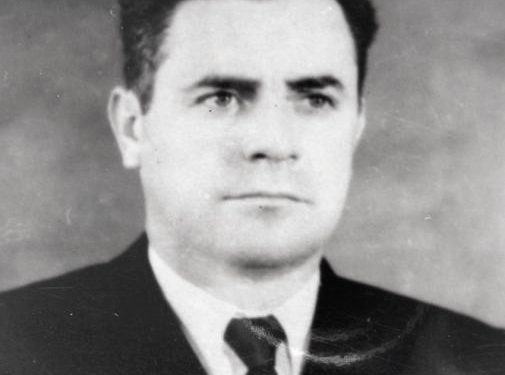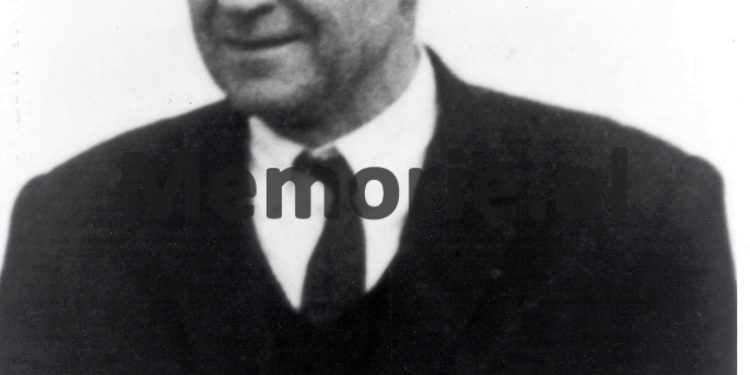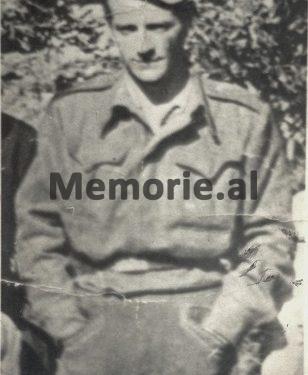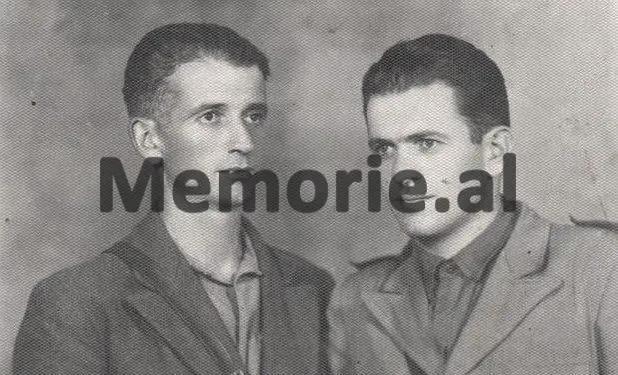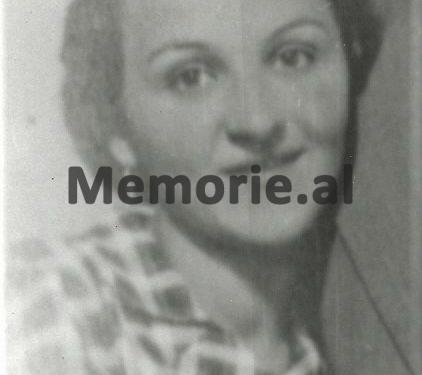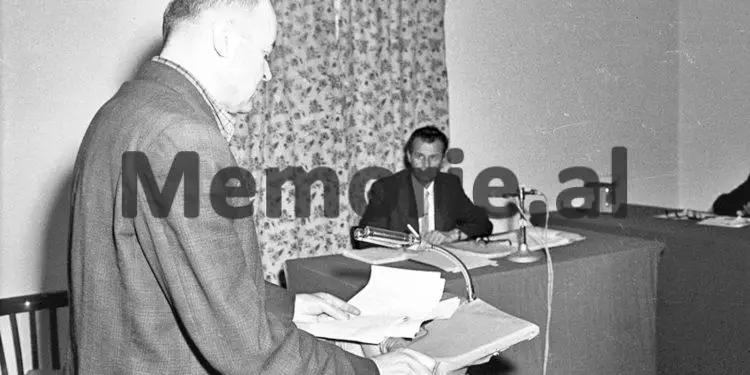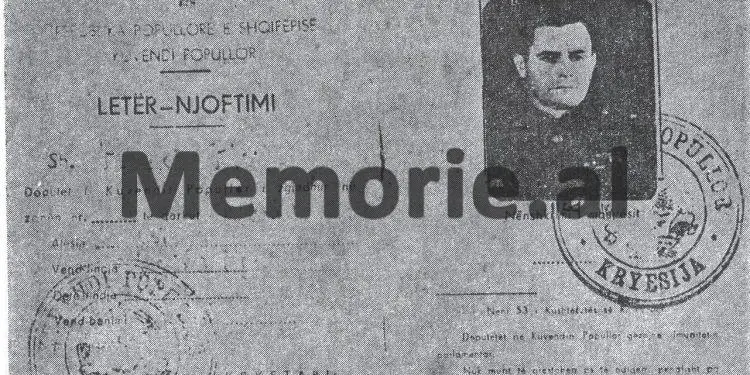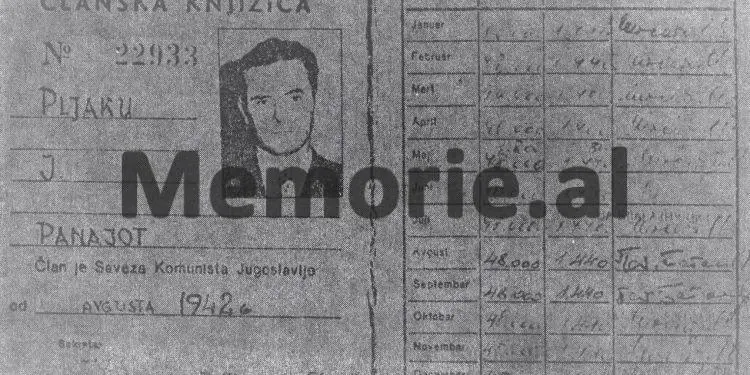From Pandi Laço
Memorie.al / The escape of General Panajot Plaku, on May 16, 1957 in Yugoslavia, were an extraordinary event that seriously shocked the communist leadership of Tirana. This time he had said goodbye to his country, one of the most popular heroes of the National Liberation War, a member of the Central Committee of the ALP and a deputy in the People’s Assembly. The well-known general fled secretly, after learning that he would be the next victim of the newly launched campaign in the fight against revisionism. It is not known how well-founded Plaku’s suspicions were, but his letter to the Central Committee of the ALP, sent a month after the escape, proved that he could not agree with the situation created in the ALP. Panajot the Elder hoped to find shelter in the USSR, but something prevented him and he apparently agreed to stay in Yugoslavia.
During the time he lived in Belgrade, he gave neither interviews nor political statements. Only on May 27, 1961, he briefly expressed his opinion about the process against Admiral Teme Sejko in the correspondence of the “Borba” newspaper. Starting from 1960, in the Yugoslav press, anonymous articles began to appear about some problems in the history of the ALP, filled with such details, which could only be known by a witness of the events. It is possible that the author of these articles and analyzes was Panajot Plaku. The truth is that after his death, in 1969, there were no more such publications. The only publication that was made after this time is the book with his memories published by two Yugoslav journalists in 1985.
Panajoti’s widow, Vjollca Plaku, returning to this event full of mysteries and unknowns, confessed a few years ago in the program “Histori me zhurmues” of the journalist Pandi Laço, a part of her memories, which clarify many things from light- the many shadows and doubts that have been rumored over the years…
Mrs. Vjollca, when did you know Panayoti?
I met Panajot the Elder through a friend of mine, in 1950 and after we talked together about what he wanted from me and I from him, we got engaged, got engaged and soon in January 1951, they got married.
Was he a soldier or not?
He was a lieutenant colonel at the time, but soon became a colonel and general. He had finished his studies in the Soviet Union. But some time ago, in 1951, I said we got married, in February 1952, I gave birth to a daughter, in June 1954 to an older son and in November 1955 to a younger son.
The escape took place in 1957, had you noticed something special, something extraordinary in Panayiot’s behavior?
Yes, those recent times I can say, the last few days, he was worried and he was not calm, the death of Kalo, his brother, had also happened, which had shocked him a lot, he couldn’t sleep at night. He did not believe that it was a normal death. (Natural).
Panayoti’s brother, meanwhile, was working on the farm, wasn’t he?
Yes, Kalua worked on the farm, he came often, when he had work in the ministry he came, he came back to us.
So, did the death of his brother bother Panayiot?
It bothered him a lot, he was not calm at night, he would turn around and roll in bed, and he didn’t believe his death, that it was a normal death.
But then what happened?
In ’56, a couple of us went to Hungary, Budapest, for vacation, and there he purposely went to get the analysis that had been done on Kalos, to prove what kind of death it was, there, when we were going out together, said; we mom’s sons, we don’t have him long, he suspected these deaths, both of Jorgo’s older brother, who was killed in the War, and of Kalo, and he was not calm.
What happened next, after you returned to Albania? What do you remember from the days before the escape?
He was complaining, not that he was complaining, but I looked at him worried, I told him to get a doctor, to be seen, he told me no and so persistently, thinking that the doctor will look at him and there was nothing to worry about.
Then he told you he was getting ready to go on a service, didn’t he?
Yes Yes. The day before he escaped, as he always went with service, inside Albania, from time to time, he went to do his work, he tells me, we prepared the suitcase with the change, as he always took. I got the suitcase ready, and the next morning he got up to go, the car came there, he said good morning, and I; Welcome, I congratulated him and he went a little way and then turned back. Erdhi took pictures of us, me and the children. And then he ran away.
When did they get the news…?!
The news came the next day and I never believed that Panayoti would run away, do this job, I never thought about it and I didn’t believe it and I contradicted those from Dega who came, telling them it’s not true. Yes, Panayoti’s mother said to me, realizing that this was true, she is old in age and a smart woman, don’t do that, she said, because we will cry for the rest of our lives, I said, you too. Since that day, they took me to the branch for questioning, they told me that; that entered and exited our house.
And who entered and left your house, from Panayoti’s friends?
Panayoti’s friends were Maqo Çomua, Mihallaq Ziçishti, Josif Pashko, Kadri Hazbiu, these were the friends who were in Albania at that time.
Did you notice anything special in his behavior for example, any great sympathy for the Yugoslavs?
No, I have never heard him speak sympathetically of the Yugoslavs.
Do you think he was a patriotic man, according to the tradition his family had?
With my mouth full, I say this. His family and he were the same.
At that time, you lived in “Blok” or somewhere near “Blok”, right?
We lived in the houses of the Prime Minister. At that time, Rita Marko, Mihallaq Ziçishti, Josif Pashko, Kadri Hazbiu, and some others, that I don’t remember, lived there. It was a kind of “Block”, outside the “Block” of leadership. Another “Block” so to speak…!
After the escape, the Director of Discovery, Zoi Themeli, has drawn up an information about the so-called; “the betrayal of Panajo the Elder”. In addition to his sympathy for the Yugoslavs, he has emphasized that he had many friendships with Tuk Jakova. What do you remember; did your husband have a close friendship with Tuk Jakova?
No, close friendship, just working relationship. Tuk Jakova was once in our house. It was the time when we were with the family in the city of Shkodra (Panajoti stayed about three months working there). Tuk Jakova, Liri Belishova and Maqo Çomoja came there one night, all three. I dealt with the children. You continue comforting the toads, Panayoti told me, that; I have little business with these. How do I know what he was doing?! State work. This is all I remember, only from contacts with Tuku…!
Another man, was Panajoti related, was Tahir Kadareja…?
I heard that Panajoti spoke with special sympathy about Tahir Kadare, but I never even knew him…!
Another point of information from Zoi Themel after Panayoti’s escape is that at certain moments, he had expressed hatred against Mehmet Shehu and Rita Markos. Did you hear something?
No, no I haven’t heard. These were apparently internal issues of the party.
How did your life continue after Panayoti’s escape?
It was a really hard life. After they kept me in Dega for 10-12 days, they transferred us to Skrapar, and there I immediately looked for a job, because I had nowhere else to live. They put me in a jam factory. It was a big norm that I couldn’t handle. 31 kg buckets cherries, we had to pit them for jam. I couldn’t do it the first day, as untrained as I was. That day, I could only do 2 kg. and 800 grams, in total. But soon, the friends I had in my arms and who had taken up this work, as soon as they finished their norm, came and helped me. I want to say that they were very close to me there, they helped me with the children, they looked after me when I went to work, they gave them anything when they asked for it, etc. Seeing the hard work, I asked to go to the tailor’s shop, but they didn’t take me…!
After you left Skrapari, where did you go?
We went to Durrës on May 1, 1958. And here, we had no right to move. This type of isolation, called banishment, was a bit milder than exile, but still difficult. 6 years, I was expelled. The children went to Tirana. Not me. My brothers used to come and take them, especially on holidays and bring them back. For myself, I was forbidden to move.
Are you eligible to vote at that time?
No. At that time, I didn’t have the front cover, which was necessary for voting.
Where did you work in Durrës?
At first, I worked as a teacher; they put me in the kindergarten of the Cigarette Factory. I worked with children with passion, so much so that they rewarded me with a letter of praise for good work. I graduated for singing at the Artistic Lyceum and after work, I used to sing. The song was the passion of my youth. However, it turned out that this crossed me badly. One day they called me to the directorate and fired me, on the pretext that I was singing songs to Panajot Plaku. They said that I was waiting for Panayiot, that’s why I sang to him. From here, they removed me and took me to the construction site.
I also had a brother in Durrës, who was removed from the General Prosecutor’s Office and brought there as punishment. It happened that in 1964 I got sick and was hospitalized. My brother came there and told me not to go to construction anymore, that they would find me another easier job. I waited, not today and not tomorrow, to settle down with work. I finally got into the Wholesale Trade Base. I worked there, at first in accounts, with warehouse cards, sales and purchases of goods, etc. And there for good work, I was rewarded.
But again, the people who didn’t like us for Panayoti’s work, called the work process I was doing privileged and intervened to remove me. I moved to the approval department, i.e., with approval of the goods, in the same company. This is a daily job, not a monthly one. A little further, a difficult job that had to do with the control of goods, so not like working in accounts, in the office. I stayed here for almost a year and a half. They also removed me from here and took me to direct manual labor. I worked there for two years, before reaching retirement age. Meanwhile, the children had started work and they insisted on staying at home. So I did…!
From the documents of the time, it is known that Panayoti’s mother was forced to condemn his work and call him an enemy. They forced you to affirm that your husband committed high treason against the country?
As I explained, we were immediately taken to Skrapar. In Tirana, the father went to the relevant offices and was told that; my daughter, she is innocent. What is the fault of her children, he emphasized, that they are exiled. He asked for separation, my divorce, with Panayoti. And it was as you said the separation by letters…!
During this period, that is, from the time of the escape and later, was you aware of what was happening to your husband?
When he died we found out. I was that day in the yard of the company and two of my colleagues, one a secretary and the other a mercerologist, called me and said: Vjollca, have you seen the newspaper? What he wrote, I replied. Panajot the Elder is dead; they told me and gave me the newspaper they were holding in their hands to read. I glanced at him there and then. There were only two dry lines: Old Panajot died and that’s it. It was not clear whether from the heart or from any possible poisoning. As soon as I finished reading those two lines, I restrained myself and turned away from them. For us, I told them, Panayoti has been dead since he fled, and he returned our arms…!
You kept in touch with Panajoti’s family members, did you meet them afterwards?
I had a meeting, only with Koço, Panayoti’s brother. It turned out that I had been in Tirana and had gone to the train station to buy a ticket. Koçua, Panayoti’s younger brother, saw me, approached me and told me to get out of the queue. I left. He cut the ticket for me and came and gave it to me. So he asked me about the children. Where are the kids? Told me. I took it to the train, where I had left it, before I came to get the ticket. I went there with Koço. He saw the children, took them one by one in his arms and kissed them lovingly. He took out a 1000 ALL coin from his pocket and gave it to her. That was the meeting with him. But it was widely known. Even my mother found out, who immediately called me worried…!
So, in a way, you distanced yourself from the treason that was being talked about at the time. I want to stay with your son for a while. During the time that Panayoti was in Yugoslavia, he wrote several times in the “Borba” newspaper, but not under his own name, at least as stated in the documents of the time. In 1985, a book was published with the memories of two Yugoslav journalists. The memories of Panajot Plaku, they claim in the introduction to the book, provide an overview of the developments in Albania from the war until the year he escaped. What can you tell us about this…?
Until the 1990s, the information was very little, not to say that we knew nothing, since the father was described as a traitor to the party and the country, enemy no. 1 of socialism. The truth is that there were very few people who approached us, let alone told us anything about Panayiot. However, we have received some information from some people, but it has been vague and unclear. After 1990, I got hold of the book of his memoirs published in Pristina in ’85 and I read it very carefully. Some parts of this book have been published in recent years in the daily press. We have noticed that some of the materials in this book are true regarding the situation in the Communist Party of Albania.
In the meantime, we found out and became aware of whom our father really was and as far as we know, he did not have any pro-Yugoslav tendencies. He has always been for the democratic development of the country, always in the context of the socialist system. Always with the communist ideal, with that ideal that pushed him to align himself with the Anti-Fascist Movement, from its first days and to be accepted into the ranks of the NPSH. These are pure ideals, for equality and justice for the people.
Focus on your family. There is a light-shadow, there are some question marks in the history of the Plaku brothers, whether it is related to the death of Kalo, in ’56, or that of Koço, who was accused and shot in ’76, with the “Group of oil”. Meanwhile, it is said that the death of Panayoti, in 1969, is also suspicious. What knowledge do you have about these?
Some time ago, Liri Belishova wrote an article mentioning Panayoti’s older brother, Jorgo Plaku, who was killed in mysterious circumstances during the War. He was the commander of a unit of three people and he was treacherously killed. He was proclaimed “Martyr” at that time. Even in Hoçisht, the first school that opened was named after him. Later, the mysterious death of Kalo Plaku happened, about which Panayoti expressed many doubts. He was never sure that the expertise given by the officials was true and asked for another expertise, the results of which were never known.
Then Panayiot died in Yugoslavia. Death, murder or poisoning?!
The truth was never told. At that time, the Albanian Red Cross turned back the request of the Belgrade Red Cross, to bring Panayoti’s body to Albania. Next came the shooting of Koço, with the “Oil Group”. Thus, the “circle” was closed with his death. All four brothers died in cruel conditions. All four were eliminated. The dictator’s pathological hatred for the Old man family exterminated them all. Memorie.al




